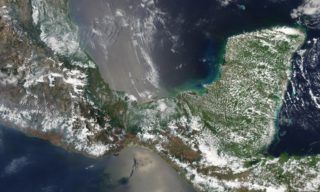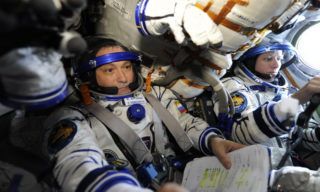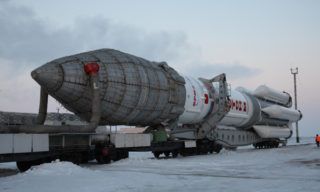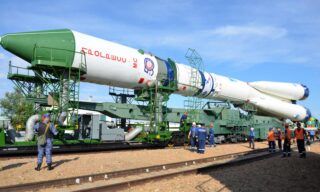In accordance with the ISS flight program station reboost maneuvre was carried out on the 3rd of April, 2013.
According to calculations of MCC ballistic-navigational support service cargo space vehicle Progress M-17M engines were ignited at 23.40 moscow time. As telemetry data states the engines were firing for 277,3 seconds. It resulted in 0,6 m/s ISS velocity increment.
The average altitude of ISS orbit increased by 1 kilometer and amounted to 410,7 km.
After station reboost maneuvre the iss parameters are as follows:
Minimum altitude over the earth surface: 406,8 km;
Maximum altitude over the earth surface: 435,5 km;
Orbital period – 92,72 min;
Orbit inclination – 51,66 degrees.
This manevre was carried out to provide the conditions necessary for Progress M-19M cargo space vehicle launch, Soyuz TMA-07M spacecraft landing on May 14, 2013 and Soyuz TMA-09M spacecraft flight, scheduled for May 29, 2013.



















